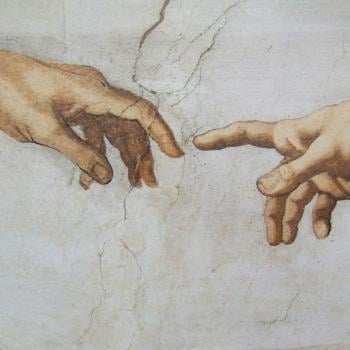Maybe us Mormons do believe in crazy stories that make absolutely no sense, and maybe Joseph Smith did make it all up. But I have a great life and a great family, and I have the Book of Mormon to thank for that. The truth is, I don't care if Joseph Smith made it all up, because what the Church teaches now is loving your family, being nice and helping people. And even though people in this town might think that's stupid, I still choose to believe in it.
It's a stirring rebuttal to "dumb dumb dumb dumb dumb," but nowhere near good enough for many social conservatives. It's clear to me both anecdotally and statistically that a large number of American evangelical Christians are uncomfortable with the Mormon faith, and that this Texas attempt to jump-start the candidacy of Santorum (who, while a Catholic, is still to most evangelicals identifiably Christian) is at least partially dictated by bias or fear of electing a "non-Christian."
The Washington Post suggests that South Carolina voters are less concerned about Romney's faith now than they were in 2008, but some remain troubled, and the campaign and national church are trying to defuse the issue in this primary by ignoring it: "Unlike last time, when Romney made a historic speech about his faith, this time he's halting all talk of religion, and church officials are halting all talk of him." If South Carolina primary voters aren't thinking about Romney as a Mormon, his election prospects improve.
That seems to be borne out across the board. Southern Baptist spokesperson Richard Land told The Times last fall that while Republicans might eventually hold their noses and vote for one of them to defeat President Barack Obama, "Jon Huntsman and Mitt Romney will face a very difficult time convincing a quarter of the electorate to vote for them in the G.O.P. primaries" because of their Mormon faith. Last summer, the Pew Research Center found that almost a third of white evangelical Republicans would be less likely to vote for a Mormon, and said that almost two-thirds of white evangelicals did not consider Mormons to be Christian. And last fall, a poll of 1000 Protestant pastors taken by Lifeway (an arm of the Southern Baptist Convention) suggested that three-fourths of these pastors rejected the claim that Mormons are Christian, which may represent a serious problem for Romney.
Because, bottom line: the Brenham Bunch were not just looking for someone that shared their social conservatism.
They were also looking for someone whom, they believed, shared their faith.
They may, in fact, have a point here, if one cares about such a thing. As The Times argued Saturday in a fine theological study of the Mormon faith, there are major differences between orthodox Christianity and Mormon belief. Mormons believe that the Book of Mormon and other revelations to Joseph Smith constitute a newer, more perfect revelation of faith than is found in the Bible alone (as Muslims believe that the Qur'an given to Muhammad represents God's final revelation). While Christians vary in their own understandings of the Bible, they generally reject The Book of Mormon as divinely inspired, and, as reflected in the Book of Common Prayer and other denominational documents, understand the Bible to, in some sense, contain all things necessary to salvation.
Mormon ideas about the nature of God also seem to differ radically from Christian orthodoxy. The historic Christian creeds affirm a Triune God: Father, Son, and Holy Spirit; over a billion Christians around the world reaffirm these beliefs every week in prayer or corporate worship. As The Times notes, however, "Mormons reject [The Trinity] as a non-biblical creed that emerged in the fourth and fifth centuries. They believe that God the Father and Jesus are separate physical beings, and that God has a wife whom they call Heavenly Mother."
Any bald statement of a religion's beliefs sounds strange (try explaining your core Christian beliefs to a Maasai tribesman, as I once did, and watch the skeptical expression on his face), but it is no wonder that Serene Jones, President of Union Theological Seminary, responds to Mormon teachings on the Trinity by saying, simply, "That's just not Christian." Christians believe in a God who is experienced in three persons, in the divinity of Christ, and in the ontological difference between the Creator and the Created.





